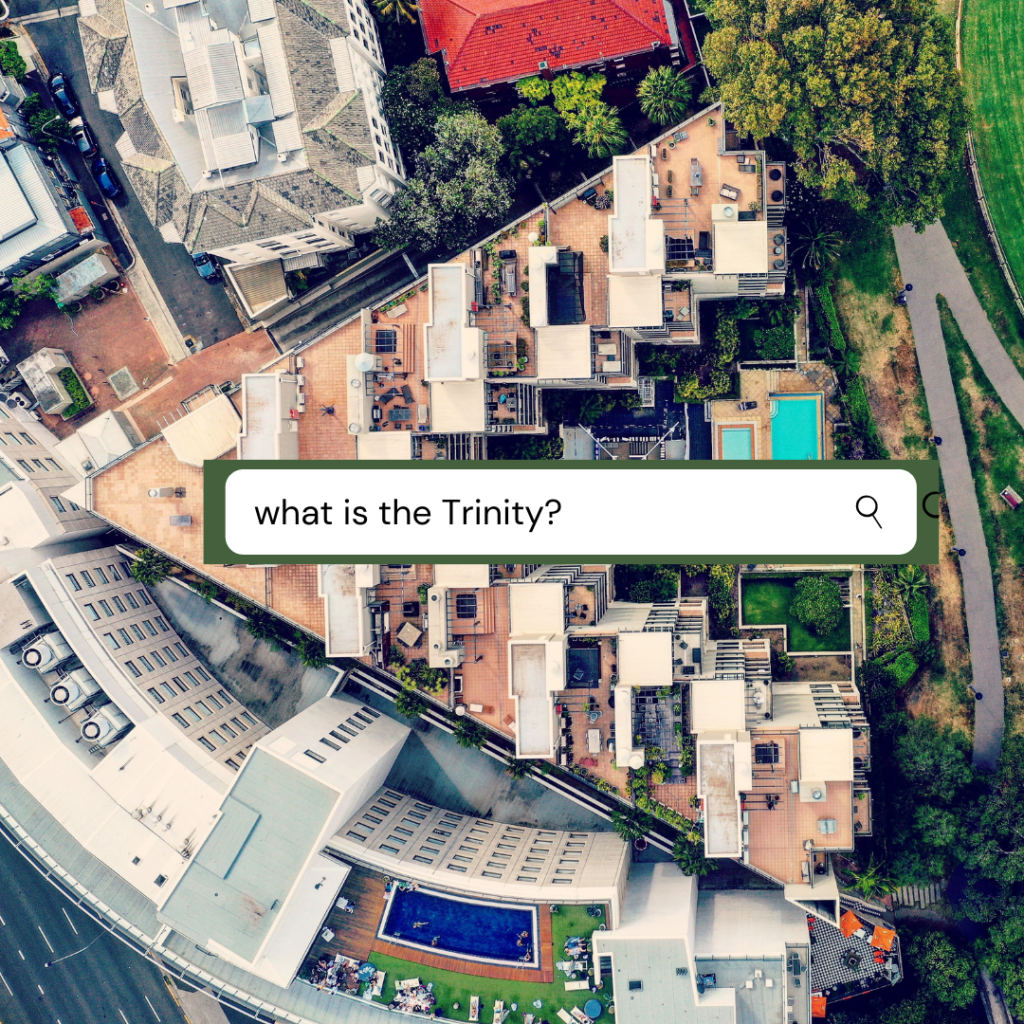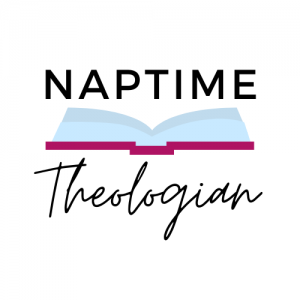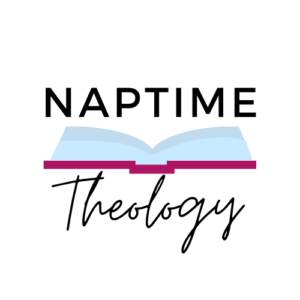The doctrine of the Trinity is one of the hardest to understand, but also one of the most foundational doctrines of the Christian faith. It affects every other aspect of Christianity. Herman Bavinck, a Dutch Reformed theologian, says, “It is in the doctrine of the Trinity that we feel the heartbeat of God’s entire revelation for the redemption of humanity. We are baptized in the name of the triune God, and in that name we find rest for our souls and peace for our consciences. Our God is above us, before us, and within us. Our salvation is bound up in the doctrine of the Trinity; we cannot of course fully plumb the mystery of this knowledge; we are given all we need to call forth a true and sincere faith.” [Reformed Dogmatics, Abridged, pg. 27]
The Trinity is vital to our very existence and salvation!
But why do we not know much about the Trinity?
I asked this question myself one day when my husband brought home a book for me to read (this one to be exact). And, maybe you have asked this question too. That is why I’ve written this post!
In my study of the Trinity I’ve learned that the Trinity is SO foundational, but also SO glorious and wonderful. I hope you will agree.
What is the Trinity?

First off, what is the Trinity?
The Trinity is three persons — the Father, the Son, and the Holy Spirit — in one being: God.
Now, why such a specific definition? Because it matters! Let me explain.
I use the word “person” because it designates the Father, the Son, and the Holy Spirit as distinct and not three “modes” of God.
And the word “being” is used because it is not the same as persons. Logically, you cannot have three persons in one person, that’s a fallacy.
You can, however, have three persons in one being.
To further explain “being” Gerald Bray, a British theologian, says, “To say that God is a ‘being’ is not to define what that being is but to emphasize that he is objectively there. He is not a figment of our imagination, nor is he some elusive idea that cannot be identified in any very precise way. He communicates with us in personal terms, but his voice is not a sound in a void; there is substance behind it.” [God is Love, pg. 138]
So, have you got the specific definition?
The Trinity is three persons — the Father, the Son, and the Holy Spirit — in one being: God.
It Is Okay to Not Know
Now you understand the Trinity completely, right? Of course not. And that’s okay.
There is a small caveat here I want to cover. I believe that we will never be able to fully understand exactly how God works.
Remember that quote up top? Even Bavinck, a well-studied theologian, says that we can never plumb the depths of the mystery of this knowledge.
And this is not only in regards to the Trinity, other aspects of God’s ways will never be understood.
But that is as it should be. For if we were to totally understand God, wouldn’t that make us god and not Him? I love when God answers all of Job’s questions in chapters 38-42. Then Job declares that God’s ways are “too wonderful” for him and that he did not know them.
That is how we should see God’s works. We will not totally understand, but that lack of understanding will cause us to glorify Him even more than if we knew all of the answers.
If you do not agree, please read Job 38-42 and let me know how many of God’s questions you can answer. You will see that God’s ways are higher than ours (Isaiah 55:9) and that should cause us to rejoice (Isaiah 25:1).
Okay, caveat covered.
Back to “What is the Trinity?”
Maybe you have heard the common metaphors that attempt to explain the Trinity: Water (Ice, steam, and liquid), Clover (three leaves, one plant), or an Egg (yolk, white, and shell). While these word pictures are meant to help, they don’t. I think that they further confuse the concept of three persons in one God and they bring down the glory of the Trinity to a human level and take away the awe that should surround such an amazing God.
Instead listen to these words from Michael Reeves, “The Father is who he is by virtue of his relationship with the Son… the Father would not be the Father without his Son (whom he loves through the Spirit). And the Son would not be the Son without his Father. He has his very being from the Father. And so we see that the Father, Son and Spirit, while distinct persons, are absolutely inseparable from each other. Not confused, but undividable. They are who they are together. They always are together and thus they always work together.” [Delighting in the Trinity, pg. 34]
The Trinity is three distinct persons in one God. Joel Beeke, an American theologian, says, “Each person of the Trinity completely embraces and encompasses the others in mutual sharing of all divine glory without any person losing his distinct personhood.” [Reformed Systematic Theology, pg. 892]
But how are they distinct? In how they work. Bavinck says, “All things proceed from the Father, are accomplished by the Son, and are completed in the Holy Spirit.” and “In an economic sense, the work of creation is more specifically assigned to the Father, redemption to the Son, and sanctification to the Holy Spirit.” [Reformed Dogmatics, Abridged, pg. 239]
And it is through these distinct works that we come to know God deeper. Again, Bavinck says, “The Trinity reveals God to us as the fullness of being, the true life, perfect holiness, eternal beauty and glory.” [Reformed Dogmatics, Abridged, pg. 245]
So, the Trinity is three persons — the Father, the Son, and the Holy Spirit — in one being: God.
Why does the Trinity matter?
There’s a plethora of reasons why the Trinity matters and why you should understand it. But I will only list three at present, the three that I found the most moving: Trinitarian Love, Our Existence, and Our Salvation. (Please consult the books I’ve referenced below for more reasons.)
Trinitarian Love
First and foremost, without the Trinity, there would not be love.
If our God was only one person, who would He love? Only Himself. There would not be another person to give His love.
But our God is three distinct persons, the Trinity. And therefore, there is someone for the other to love. John 17:24 says that “[the Father] loved [the Son] before the creation of the world.” So even before our world existed, there was love. God’s love. The love of the Father for His Son.
This is how John can say that God is love (1 John 4:8). His love has always existed in the Trinity.
Our Existence
Without the Trinity, we would not exist.
Wait… what? Yes, you read that right. It’s true, without the love of God, which only exists by the Trinity (see above), we would not exist. We were created as an outpouring of God’s love.
Paul says in Romans 8:29, “For those whom He foreknew, He also predestined to become conformed to the image of His son, so that He would be the firstborn among many brethren.”
The Father’s love for the Son radiated out so that God wanted His love to fill others and thus He created humans. Jesus, the Son, explains this best in His high priestly prayer: “Father, I desire that they also, whom You have given Me, be with Me where I am, so that they may see My glory which You have given me, for You loved Me before the foundation of the world. O righteous Father, although the world has not known You, yet I have known You; and these have known that You sent Me; and I have made Your name known to them, and will make it known, so that the love with which you loved me may be in them, and I in them.” (John 17:24-26).
We see this in the creation account as well. Genesis 1:26-28 says, “‘Let us make man in our image, according to our likeness’ … God created man in His own image, in the image of God He created him.” It is God’s image that He’s put in us because of His love.
Our Salvation
Not only does the Trinity make our existence, but our salvation would also not be possible without the Trinity.
First John 4:8-10 says,”The one who does not love does not know God, for God is love. By this the love of God was manifested in us, that God has sent His only begotten Son into the world so that we might live through Him. In this is love, not that we loved God, but that He loved us and sent His Son to be the propitiation for our sins.”
The ultimate, most extreme act of God’s love was the Cross. John 15:13 says, “No greater love has one than this, that he lay down his life for his friends.”
So the Trinity brings love, which brings humans, which brings the ultimate act of that love, the cross and salvation.
Simply put, we owe everything to the Trinity.
Conclusion: We Should Love the Trinity
I hope you can see now that one blog post could never suffice when it comes to the majesty of the Trinity. But we have scratched the surface here. My own study of the Trinity has truly elevated my view of God.
I am so much more in awe, so much more in astonishment, and so much more in love with the Trinitarian God that I serve.
And I agree with Beeke when he said, “How fervently we should love the doctrine of the Trinity! Too often it is consigned to the dusty shelves of confessed bit neglected doctrines–regarded as abstract dogma without practical implications. In reality however, the triune God is the only Savior. We should cherish this doctrine, study it in the Holy Scriptures, meditate upon it until it inflames our hearts.” [Reformed Systematic Theology, pg. 879]
Books Referenced and Other Resources:
This post contains affiliate links, read my full disclosure here.
Related Posts:
Why Should I Study Theology?
What is the Gospel?
3 Reasons to Read the Genealogies in the Bible




1 Comment